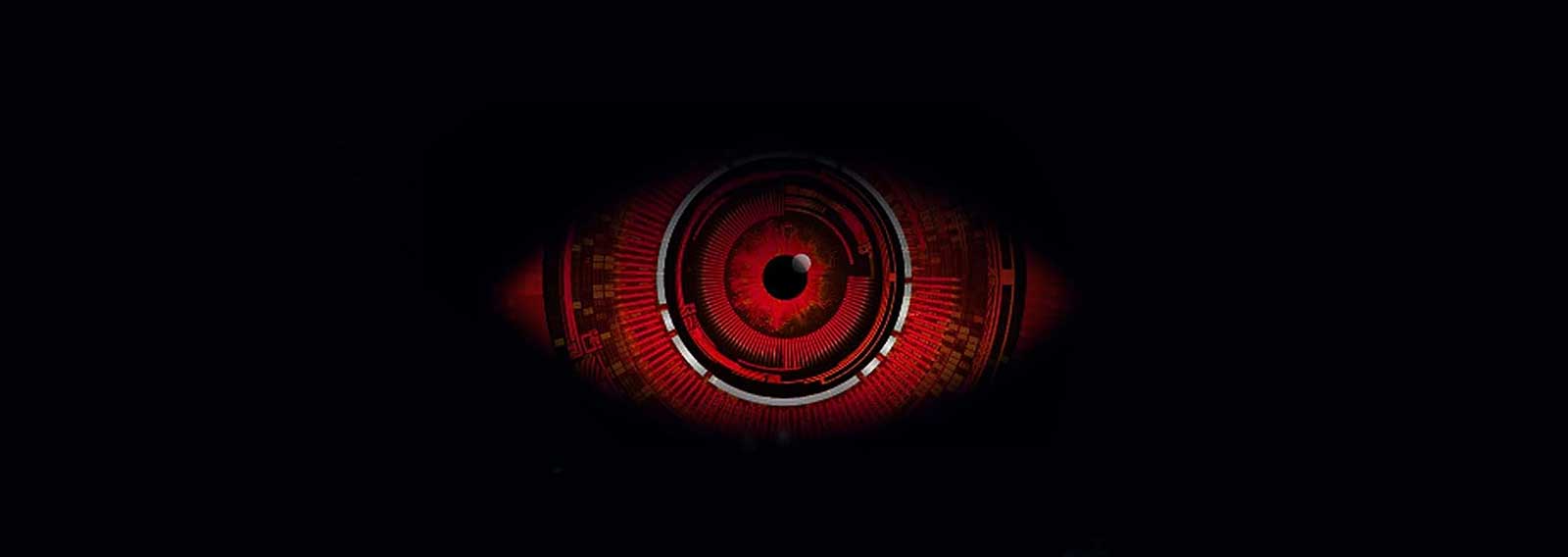We used to think of ugly totalitarianism as applying to monstrous ideologies such as Communism and Nazism. They certainly do indeed fit the bill, but sadly we are seeing other nations starting to clearly move in this direction. Now we have so-called free and democratic societies increasingly seeking to emulate these police states of last century.
Indeed, with the help of new technologies and the like, the prospect of a totalist state arising in the West has gone from far-fetched to something to be quite concerned about. And of course, the full proof of this is what we have witnessed over the past four years, especially during the Covid reign of terror.
Lockdown madness, medical fascism, scientific fraud, vaccine passports, rampant fear-mongering, Big Media complicity, and statist overkill were all on full display. If all that was just a dry run for a future full-tilt takeover of cultures and peoples, we now know how things will pan out next.
Noted intellects and authors such as Orwell, Huxley, Tolkien and Lewis – to name but a few – all wrote quite sober works warning about such things, whether in the form of fiction or non-fiction – or both. One of the newest volumes to offer more of the same is by Auron MacIntyre.
He draws primarily on political theorists and moral philosophers such as Joseph de Maistre, Bertrand de Jouvenel and Alasdair MacIntyre, and also appeals to noted Christian writers such as Chesterton and Lewis. He examines how Western democracies are being undone not just by our political elites but by flawed notions of progress, efficiency and individualism.
One key theme that he discusses is that of mediating structures – those institutions that stand between the individual and the state (the family, churches, and so on). Increasingly they are disappearing before the growing state. The state is usurping the role of these entities and gaining ever more power as a result.
In The Total State: How Liberal Democracies Become Tyrannies, he writes:
In his book On Power, Bertrand de Jouvenel explains that it is the collapse of these competing social spheres that has allowed government to centralize and grow more totalitarian while making the individual feel more liberated. Historically, a large extended family was the norm, binding together children, parents, siblings, uncles, aunts, and cousins. Churches and other community organizations lent aid, but care for an ailing grandparent or destitute niece fell primarily on the family.
As the bonds that held together traditional societies wore away, the obligations that foundational communal institutions had once placed on the individual faded. Families shrank, church attendance fell, unions and civic organizations dissolved, and the individual was suddenly freed from these obligations. Even his residual duties, like caring for an ailing or destitute loved one, were largely transferred to the state. Insurance for the unemployed, medical care, social security, the supervision and education of children, all that used to burden the individual was lifted off of his shoulders. This is how a totalizing government has made unprecedented demands on its subjects without them feeling the squeeze. It replaced the competing social spheres that had previously served to check the power of the state and removed the extensive personal commitments they had entailed.
The Total State: How Liberal Democracies Become Tyrannies, p.19
And both sides of politics can make this happen: “By dissolving the bonds and obligations of family, tribe, and religion, the ruler can make his subjects entirely loyal to and dependent on the state. Liberalism does this in the name of freedom for the individual, while socialism does it in the name of the collective good, but the result is the same.” (p. 22)
As but one example of all this, we can see how the radical sexual revolution has served the total state so very well. It is a key weapon in tearing children away from their parents:
There is a reason why every organ of power in the United States seems obsessed with introducing sexual and gender identity to children at an increasingly young age. Normalizing the idea of transexual children is an incredibly useful tool for the regime because it can serve as a reliable wedge between kids and their parents. If children can choose their own gender, if the ability to choose their gender is a human right, then it becomes the duty of the government to protect that right. Protect that right from whom, you might ask? The parents, of course. (p. 24)
He also spends a good amount of time on “The Managerial Revolution” as James Burnham famously wrote in his 1941 book by that title. Managers and technocrats will end up running the show, Burnham had warned. MacIntyre later speaks more to this grip of the state on our children:
The total state’s management of children is most effectively achieved through compulsory state-funded education. The student is managed at all times by credentialed experts, with every aspect of their day planned through the constant application of managerial techniques. All issues of discipline are settled through increasingly therapeutic models of resolution. At every stage, undesirable prejudices and moral peculiarities are stripped away through the application of therapeutic courses of behavioral modification. Mothers and fathers who do not heed the advice of a state-appointed manager can be stripped of their parental rights…
p. 103
He also reminds us of the myth of the neutral institution, something which our elites are pushing. Education is not neutral, our corporations are not neutral, and the state certainly is not neutral. In the West, the values and beliefs once provided by Christianity have been almost entirely removed.
But a vacuum cannot last. The state has come along and replaced these old values and imperatives with those of their own making. Says MacIntyre, “As odd as it sounds, we are governed by a decentralized atheistic theocracy. A religious system without an official holy book or central church, but a religious system of moral assumptions all the same.” (p. 15)
He goes on to remind us that the American Founding Fathers “never envisioned a secular society where the entire ruling class received moral instruction exclusively from progressive universities.” But that is where we have now come to. So at the end of the day, this is really a religious war, with two radically different worldviews battling it out. And the total state – the secular, materialistic state – is winning in much of the West.
And all this nicely explains nefarious entities such as the World Economic Forum, with its unapologetic slogan, “You will own nothing and you will be happy,” He writes:
The ideal system is one in which every aspect of the subject’s life is rented from massive entities, ensuring no stability can ever be achieved. Similarly, independent employment and entrepreneurship is a threat to the total dependence demanded by the managerial formula. Everyone who is allowed to earn a living apart from the mass bureaucracy is a threat. This is why the eradication of the American middle class is a top priority for the total state…
p. 113
And the woke corporate world is fully involved in all this as well. Consider the well-known debacle surrounding Bud Light. By running with a trans activist in its advertising campaign, the company lost over $27 billion in market value. But instead of changing course, it dug its heels in and sought to push this madness even further. Says MacIntyre:
If a cabal of Anheuser-Busch enemies wanted to take the company down, they could not do better than placing Dylan Mulvaney’s face on the Bud Light can. Why did this happen? The answer is that the individual managers inside Anheuser-Busch do not, in fact, act in the interest of the company or its shareholders. Each of these managers knows that they will eventually need to get another job to advance their careers. Some will do so by moving up inside the organization, but most will move to other companies. Skill sets inside the managerial class are largely interchangeable and bureaucrats freely move between employers to climb the ladder. Losing market value is not great, but betraying the managerial class itself is far more deleterious to your employment prospects.
p. 134
He looks further at the dehumanisation and disintegration that occurs at the hands of the totally managed and controlled state. It can only get worse. But despite all the bleak reading found in this volume, there is nonetheless some good news.
MacIntyre reminds us that the modern Western total state is ultimately not sustainable. The Soviet Union of course had collapsed under its own internal weight of inefficiency and dysfunction (along of course with the strategic placement of Cruise missiles in Western Europe). Totalitarian regimes cannot long last, despite all the coercion and attempts at total control:
Ultimately, the total state will fail because widely different peoples spread across vast distances cannot, and will not, be governed as one unified whole. The total state may have dissolved the social fabric, destroyed meaningful spiritual connection, and eliminated hard property in order to make its subjects easier to rule, but it has also made the nation’s human capital sadder, less healthy, and less competent in the process.
p. 153
And again:
The materialistic and hedonistic pseudo-religion used by the total state to liquify cultures and produce more efficiently managed bureaucracies has no staying power. The ideological need to sever man from the transcendent abolishes that which truly makes him human. The posthuman future is not one of wondrous space travel but the slow decline of a society no longer capable of innovation, creativity, or even general maintenance. Each generation of managerial elites becomes more powerful by creating more uniformity, limiting options, and standardising thought. The ability to maintain systems fades, while individuals become too atomised and hedonistic to sacrifice on behalf of the future. The attempt to construct the perfect posthuman managerial subject capable of integrating into a global society dooms itself by ignoring essential truths that are both material and spiritual in nature. As G. K. Chesterton rightly observed, “Every high civilization decays by forgetting obvious things.”
pp. 154-155
That should give us some hope. But we dare not let our guard down. The power-hungry elites will not stop seeking to get full control of everything and everyone. The Covid madness made this quite clear, something MacIntyre also regularly draws attention to in this book.
But being aware of the war we are in is part of how we fight back. And reading a book like this is a good element in that process.






















